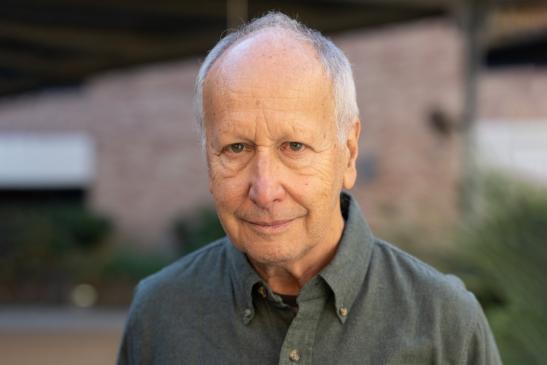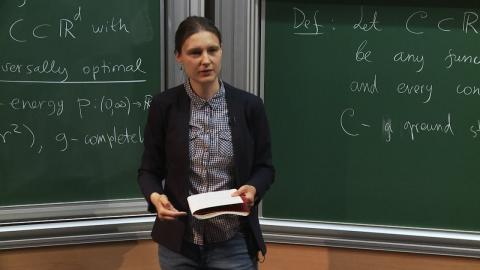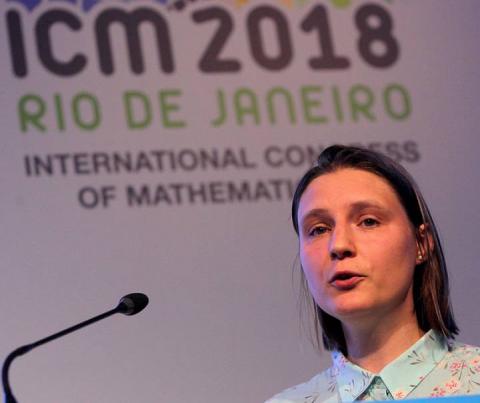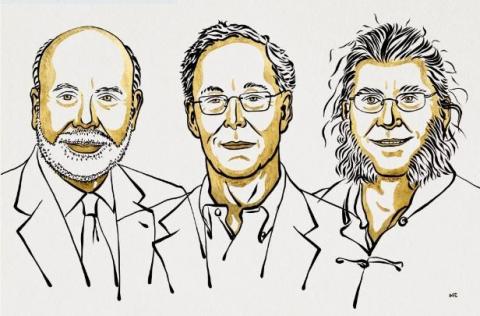Reactions: Luis A. Caffarelli wins the Abel Prize, the Nobel Prize in Mathematics, for his contributions to the regularity of partial differential equations
The Norwegian Academy of Science and Letters has awarded the Abel Prize to Luis A. Caffarelli, a native of Argentina with US-Argentine nationality, for his "fundamental contributions to the theory of the regularity of nonlinear partial differential equations". Considered the Nobel Prize of mathematics, the award recognises work over an entire career - unlike the Fields Medal, which is awarded for a result under the age of 40. Caffarelli has become the first Latin American to receive this award.

José María Martell - premio Abel EN
José María Martell Berrocal
Scientific researcher at ICMAT and Vice-President for Scientific and Technical Research at CSIC
It is excellent news that Professor Caffarelli has received this award in recognition of an outstanding career. Luis Caffarelli has made fundamental and far-reaching contributions to the field of differential equations and free boundary problems. His work has influenced a whole generation of mathematicians working at the interface between harmonic analysis, partial differential equations and geometric measure theory.
Caffarelli's results are first-rate and groundbreaking. He is recognised worldwide for his extraordinary quality. His work is a combination of brilliant genius and profound intuition.
Victoria Otero - premio Abel EN
Victoria Otero Espinar
Professor of Mathematical Analysis at the University of Santiago de Compostela, first vice-president of the Spanish Royal Mathematical Society and researcher at the Galician Centre for Mathematical Research and Technology, CITMAga
Luis Caffarelli has received the Abel Prize for his "fundamental contributions to the theory of the regularity of nonlinear partial differential equations, including free boundary problems and the Monge-Ampère equation".
Partial differential equations (PDEs) are a powerful tool used to mathematically describe processes in nature and technology, such as the motion of fluids, the behaviour of structures, the spread of natural phenomena like fires or tsunamis or invasive species, or the evolution of a disease in a population. Caffarelli's scientific work has been developed in the field of pure mathematics, but his interest in subjects that are highly useful for applications should be highlighted. Caffarelli has excelled in the field of non-linear PDEs, where he has made fundamental contributions to their understanding by applying novel and ingenious techniques combined with a great deal of geometrical knowledge.
Luis A. Caffarelli's work is largely concerned with free boundary problems. These are a class of PDE problems in which, in addition to knowing the underlying PDE problem, we want to know the unknown interface. Two of the most classic examples of free boundary problems are determining the position of an elastic membrane over a given obstacle and the model that arises when a block of ice is immersed in water and we want to understand how the ice melts, that is, to determine the evolution of the system, for which it is essential to have information about the interface between the ice and the water (free boundary). Well, from a mathematical point of view, a key question is to understand the regularity of the free boundaries. In principle, these boundaries could be very irregular, so it is interesting to know, for example, if there is any property that makes the free boundary regular.
Luis Caffarelli has made numerous contributions to the theory of free boundary problems and has also obtained fundamental regularity results for completely nonlinear elliptic equations, such as the Monge-Ampère equation, solving problems that have been posed for decades. Another of his most famous results is related to the partial regularity of the solutions of the Navier-Stokes equations. He has also made valuable contributions to homogenisation and optimal transport theory, and more recently in the field of non-local partial differential equations with fractional diffusion of the Lévy type.
Luis A. Caffarelli's relationship with Spanish mathematicians has been intense, and the Spanish Royal Mathematical Society made him an Honorary Member in 2015.



